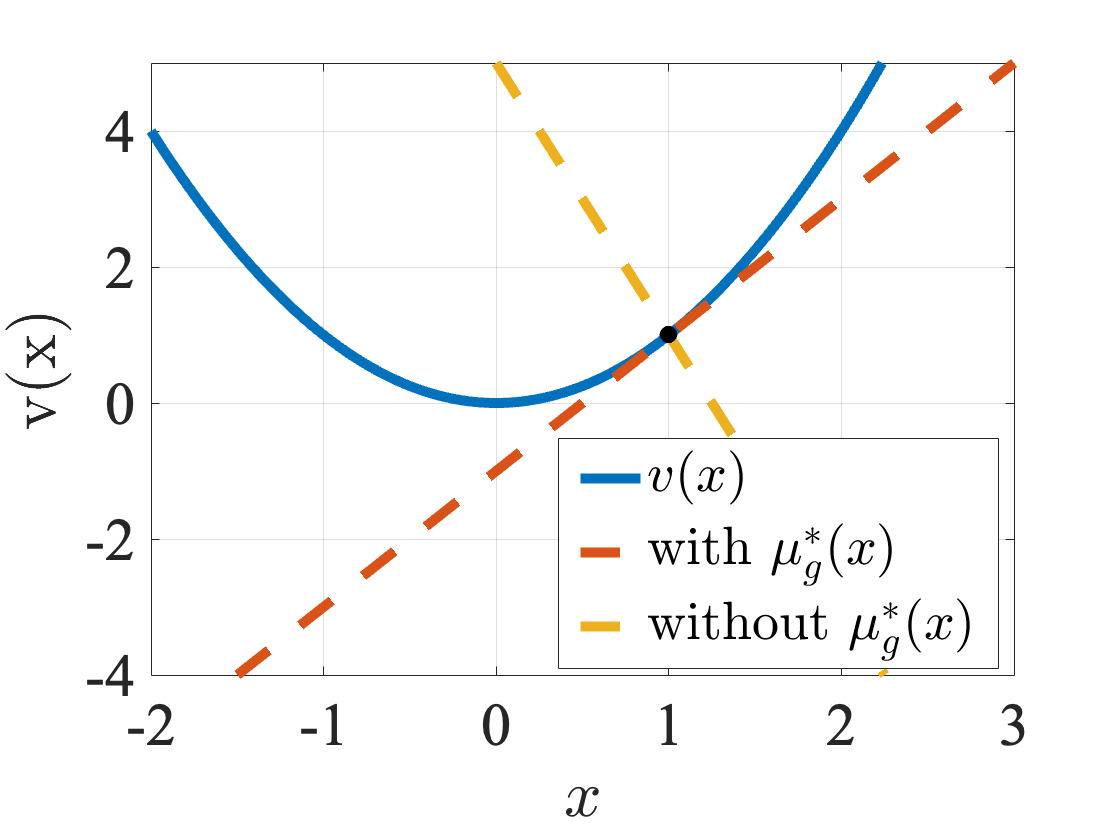Functional Bilevel Optimization for Machine Learning
2403.20233

0
0
🛠️
Abstract
In this paper, we introduce a new functional point of view on bilevel optimization problems for machine learning, where the inner objective is minimized over a function space. These types of problems are most often solved by using methods developed in the parametric setting, where the inner objective is strongly convex with respect to the parameters of the prediction function. The functional point of view does not rely on this assumption and notably allows using over-parameterized neural networks as the inner prediction function. We propose scalable and efficient algorithms for the functional bilevel optimization problem and illustrate the benefits of our approach on instrumental regression and reinforcement learning tasks.
Create account to get full access
The paper introduces a new functional perspective on bilevel optimization problems for machine learning. In these problems, the inner objective is minimized over a function space, rather than the typical parametric setting where the inner objective is strongly convex with respect to the parameters of the prediction function. This functional viewpoint allows the use of over-parameterized neural networks as the inner prediction function.
The authors propose scalable and efficient algorithms for the functional bilevel optimization problem. They demonstrate the benefits of their approach on instrumental regression and reinforcement learning tasks, which have natural functional bilevel structures.
No details are provided regarding the algorithms or their performance on specific tasks.
This summary was produced with help from an AI and may contain inaccuracies - check out the links to read the original source documents!
Related Papers
🤯
On Finding Small Hyper-Gradients in Bilevel Optimization: Hardness Results and Improved Analysis
Lesi Chen, Jing Xu, Jingzhao Zhang

0
0
Bilevel optimization reveals the inner structure of otherwise oblique optimization problems, such as hyperparameter tuning, neural architecture search, and meta-learning. A common goal in bilevel optimization is to minimize a hyper-objective that implicitly depends on the solution set of the lower-level function. Although this hyper-objective approach is widely used, its theoretical properties have not been thoroughly investigated in cases where the lower-level functions lack strong convexity. In this work, we first provide hardness results to show that the goal of finding stationary points of the hyper-objective for nonconvex-convex bilevel optimization can be intractable for zero-respecting algorithms. Then we study a class of tractable nonconvex-nonconvex bilevel problems when the lower-level function satisfies the Polyak-{L}ojasiewicz (PL) condition. We show a simple first-order algorithm can achieve better complexity bounds of $tilde{mathcal{O}}(epsilon^{-2})$, $tilde{mathcal{O}}(epsilon^{-4})$ and $tilde{mathcal{O}}(epsilon^{-6})$ in the deterministic, partially stochastic, and fully stochastic setting respectively.
5/15/2024

A Primal-Dual-Assisted Penalty Approach to Bilevel Optimization with Coupled Constraints
Liuyuan Jiang, Quan Xiao, Victor M. Tenorio, Fernando Real-Rojas, Antonio Marques, Tianyi Chen

0
0
Interest in bilevel optimization has grown in recent years, partially due to its applications to tackle challenging machine-learning problems. Several exciting recent works have been centered around developing efficient gradient-based algorithms that can solve bilevel optimization problems with provable guarantees. However, the existing literature mainly focuses on bilevel problems either without constraints, or featuring only simple constraints that do not couple variables across the upper and lower levels, excluding a range of complex applications. Our paper studies this challenging but less explored scenario and develops a (fully) first-order algorithm, which we term BLOCC, to tackle BiLevel Optimization problems with Coupled Constraints. We establish rigorous convergence theory for the proposed algorithm and demonstrate its effectiveness on two well-known real-world applications - hyperparameter selection in support vector machine (SVM) and infrastructure planning in transportation networks using the real data from the city of Seville.
6/18/2024

Bilevel reinforcement learning via the development of hyper-gradient without lower-level convexity
Yan Yang, Bin Gao, Ya-xiang Yuan

0
0
Bilevel reinforcement learning (RL), which features intertwined two-level problems, has attracted growing interest recently. The inherent non-convexity of the lower-level RL problem is, however, to be an impediment to developing bilevel optimization methods. By employing the fixed point equation associated with the regularized RL, we characterize the hyper-gradient via fully first-order information, thus circumventing the assumption of lower-level convexity. This, remarkably, distinguishes our development of hyper-gradient from the general AID-based bilevel frameworks since we take advantage of the specific structure of RL problems. Moreover, we propose both model-based and model-free bilevel reinforcement learning algorithms, facilitated by access to the fully first-order hyper-gradient. Both algorithms are provable to enjoy the convergence rate $mathcal{O}(epsilon^{-1})$. To the best of our knowledge, this is the first time that AID-based bilevel RL gets rid of additional assumptions on the lower-level problem. In addition, numerical experiments demonstrate that the hyper-gradient indeed serves as an integration of exploitation and exploration.
5/31/2024
🏅
Principled Penalty-based Methods for Bilevel Reinforcement Learning and RLHF
Han Shen, Zhuoran Yang, Tianyi Chen

0
0
Bilevel optimization has been recently applied to many machine learning tasks. However, their applications have been restricted to the supervised learning setting, where static objective functions with benign structures are considered. But bilevel problems such as incentive design, inverse reinforcement learning (RL), and RL from human feedback (RLHF) are often modeled as dynamic objective functions that go beyond the simple static objective structures, which pose significant challenges of using existing bilevel solutions. To tackle this new class of bilevel problems, we introduce the first principled algorithmic framework for solving bilevel RL problems through the lens of penalty formulation. We provide theoretical studies of the problem landscape and its penalty-based (policy) gradient algorithms. We demonstrate the effectiveness of our algorithms via simulations in the Stackelberg Markov game, RL from human feedback and incentive design.
6/4/2024